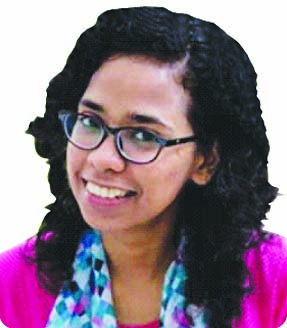Surge in child marriage amid pandemic

Thirteen-year-old Shahina was married off last year amid the pandemic within three months of the closure of school as her parents found it difficult to bear the expenses of their family.
She was studying in class six of a school in Dhaka before the pandemic.
This is just one of the myriad of instances of child marriage that has taken place in the country amid the pandemic because of the economic hardships faced by the low-income people coupled with the closure of schools.
According to a survey titled “Rapid Analysis of Child Marriage Situation during Covid-19 in Bangladesh”, conducted by Manusher Jonno Foundation (MJF), 13,886 child marriages took place in 21 districts of Bangladesh between the period of April and October 2020.
While talking to this correspondent, Shahina’s mother, a domestic help said, “We would have to marry her off today or tomorrow. Since the schools were shut and we had no source of income to feed the family of six, we decided to marry her off.”
Director of Save the Children’s Child Rights Governance and Child Protection Sector Abdullah Al Mamun told Bangladesh Post, “According to a survey report of Multiple Indicator Cluster Survey (MICS) the child marriage rate in Bangladesh was above 52 percent even in 2019, before the pandemic. The emergence of Covid-19 pandemic and the closure of school combined paved the way for those who want to marry off girls at an early age.”
He said that in order to prevent child marriages the parents and marriage registers involved should be awarded exemplary punishment.
He suggested that schools can play an important role in bringing the perpetrators involved in child marriages under the law.
He further said that although the country has witnessed a surge in child marriage amid the pandemic, but the tendency of the society to see girls’ only job is to get married and produce children is the main reason for such increase, be it before or amid the pandemic.
“This perspective has to be changed. Unless the mindset of people to see male and female child equally is developed, this problem cannot be solved,” he added.
According to a recently published news in the media, eight out of nine girls of class nine of a Kurigram school were married off amid the pandemic.
Only one girl of the class showed up at the school after reopening of the institution on September 12.
An analysis titled “Covid-19: A threat to progress against child marriage” released by UNICEF
in March 2021 predicted that ten million additional child marriages may occur before the end of the decade, threatening years of progress in reducing the practice across the world.
Tomoo Hozumi, UNICEF Representative in Bangladesh, on the day this analysis was disclosed, said that despite significant progress, Bangladesh has the fourth highest prevalence of child marriage in the world.
According to another UNICEF report titled “Ending Child Marriage: A Profile of Progress in Bangladesh”, to achieve the Sustainable Development Goal (SDG) target to end child marriage by 2030, and the national target to end child marriage by 2041 in Bangladesh, progress must be
at least eight times faster than the rate of the past decade to meet the national target, and 17 times faster to meet the SDG target.
The pilot project titled “Accelerating Action to End Child Marriage in Bangladesh” is being implemented by the government in Bogura and Jamalpur by the Department of Women Affairs under the Ministry of Women and Children Affairs.
With United Nations Fund for Population Activities (UNFPA) funding, the project worth Tk
543.20 lakh began its operation in November 2017 and is scheduled to end in December this year.
The main activities taken up under this project include the establishment of adolescent resource centres for teenage girls in these two districts.
Seventy-two adolescent resource centres have already been established and 50 of them are in Bogura and 22 in Jamalpur.
The teenage girls are provided with various types of assistance including mental health protection and awareness about reproductive health system.
They are also provided with training under three modules under the project-livelihood training, computer training, and gender awareness.
The registration for membership of these adolescent training centres is free of cost.
Jannatul Ferdous, the director of this project told Bangladesh Post that even during the lockdown some of the awareness programmes have been actively conducted in compliance with the government’s health guidelines.
“Teenage girls of these districts were provided with protective equipment including hand sanitizer, mask, hand wash and sanitary napkins amid the pandemic,” she added.




